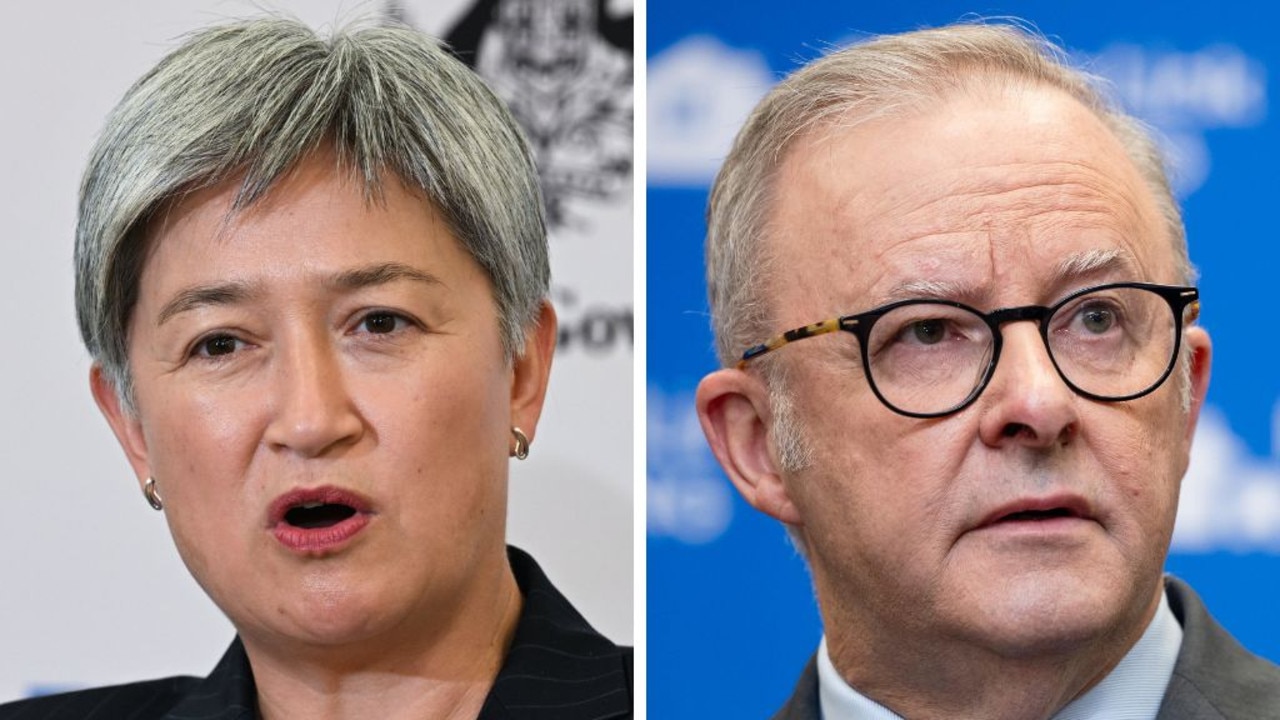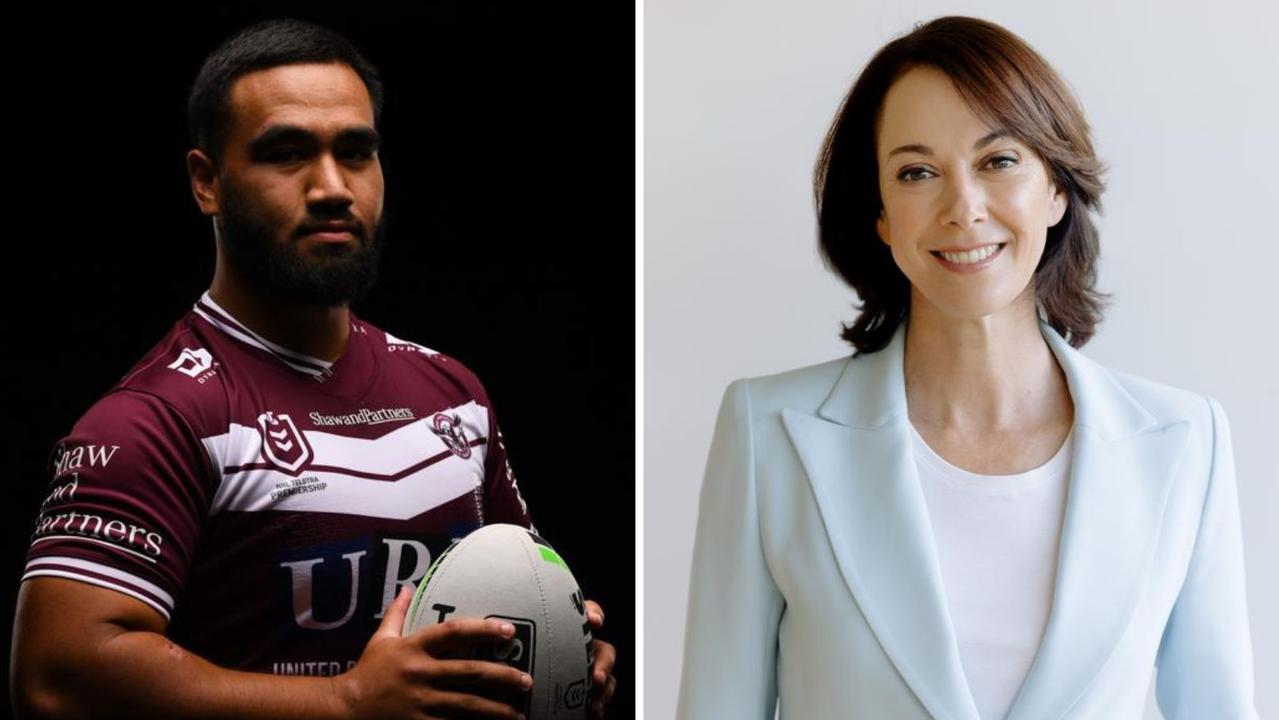Editorial: Use your vote in this election to secure our long-term prosperity
Having struggled through the worst cost-of-living crisis in living memory, Australians need a leader with a bold vision for the future offering prosperity and security. Read The Sunday Telegraph editorial.
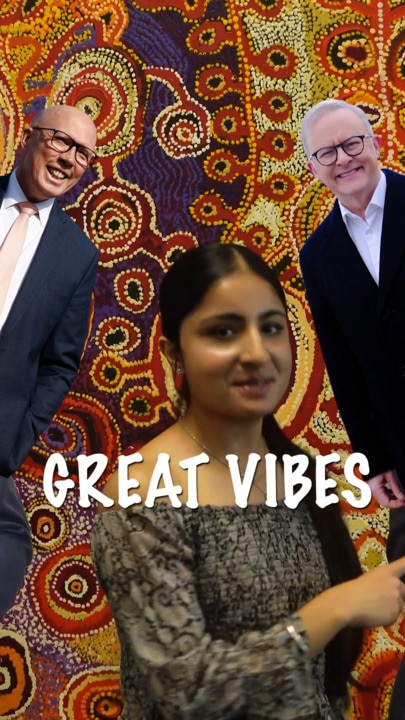
Opinion
Don't miss out on the headlines from Opinion. Followed categories will be added to My News.
Australians came to this election campaign full of hope for a reset.
Having struggled through the worst cost-of-living crisis in living memory, Australians needed a leader with a bold vision for the future offering prosperity and security.
We are on a precipice where both are in peril.
When the election was called, there was no doubt the three years since Anthony Albanese came to power had been challenging to say the least.
Power prices hadn’t come down by $275 as promised but had instead headed in the other direction.
Higher energy prices fuelled rampant inflation across the economy, while an acute housing shortage and high interest rates made finding a home and keeping it an impossible dream for many young Australians.
Immigration was out of control and hospitals were swamped, with Labor’s urgent care clinics doing little to ease the strain. Social cohesion was frayed, with the government’s soft response to anti-Semitism emboldening bad actors.
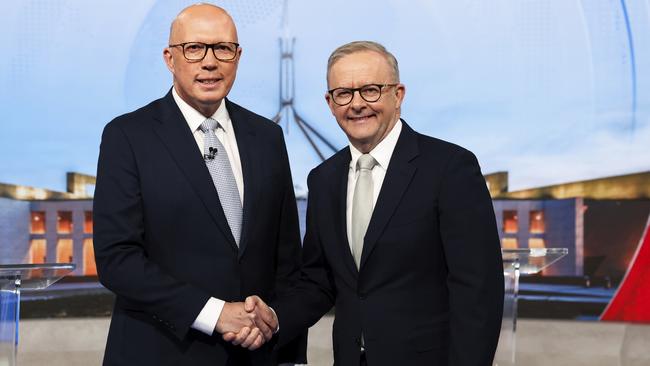
Meanwhile, this big-spending government had shredded $364m to run a failed Voice to Parliament referendum while ordinary Australians were struggling to put a roof over their head and food on the table.
And so, as election year 2025 dawned, there was a clear sense that Aussies — hard workers who expected grit and sacrifice to be rewarded with opportunity — were demanding change.
Next weekend offers a fork in the road.
Despite a campaign that has been underwhelming and fiscally reckless in its policy offerings, this election is a critical one.
While green shoots are emerging in the economy, serious structural problems remain.
Vital challenges like balancing the Budget, boosting productivity and tackling the drag of bracket creep have remained largely unaddressed.
Meanwhile, we have the ongoing strategic challenge of an increasingly militant China seeking to further exert its influence in the region as well as the shock prospect of Putin’s Russia placing military planes on our doorstep.
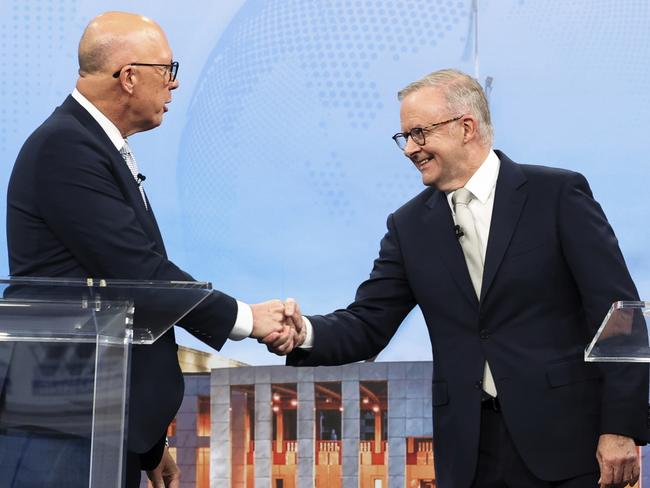
And there is another serious threat hanging over this election that’s even closer to home — that of the radical Greens, whose bizarre economic policies and morally bankrupt anti-Semitism would harm our greater good if given any power in a hung parliament.
All of this means that the decision Australians make at this election is one that will impact us for far longer than the next three years of the parliamentary term.
Australia needs leadership that can steer us through turbulent economic waters both at home and abroad, a leader who can ensure our national security against foreign actors, and a leader who can ensure that our citizens feel safe on our streets and in our homes.
The times demanded boldness and reform, but it is fair to say that in the past four weeks we have seen little of that from either side.
Instead this campaign has been punctuated by sporadic sugar hits that are shameless electoral sweeteners without any real appetite for the medicine this country needs.
From the Budget teasers of fuel excise cuts from the Coalition and low-octane tax cuts from Labor, to the billion-dollar explosions of housing policy giveaways at campaign launches, these big-ticket items smacked more of big bucks than serious reforms.
Indeed, both sides seemed more anxious to merely match each other’s spending rather than prosecute their own policies.
This began with the Liberals’ pledge to match Medicare spending increases in a futile attempt to head off a Mediscare 2.0 campaign that Labor went ahead with anyway, regardless of facts.
Still, in the midst of this me-too politics, there have been rare and important moments of courage and clarity.
It was pleasing to see Peter Dutton pledge to inject at least $21bn more into defence, vowing to lift military spending to 3 per cent of GDP within a decade — if only at the last minute. While lacking in detail, Dutton’s commitment sends a clear message to the world that Australia is serious about our national and regional security.
Albanese said on Saturday that he, too, was open to an unspecified increase in defence spending.
While Albanese has fairly criticised Dutton for lacking details, a promise to increase crucial funding with no new dollar figure is too hollow for Australians to trust — especially after party president Wayne Swan’s shortsighted declaration that the Coalition’s pledge was “unnecessary”.
It is also Dutton who has had the courage to address the elephant in the room when it comes to energy security and affordability, by advancing a plan for nuclear power in this country.
This has belled the cat on the absurdity of our current nuclear policy, under which we export uranium to other countries for their power needs but cannot use it for our own.
While Dutton has fallen short on truly selling this policy, it nonetheless shows a degree of mettle that has been lacking in Australian politics.
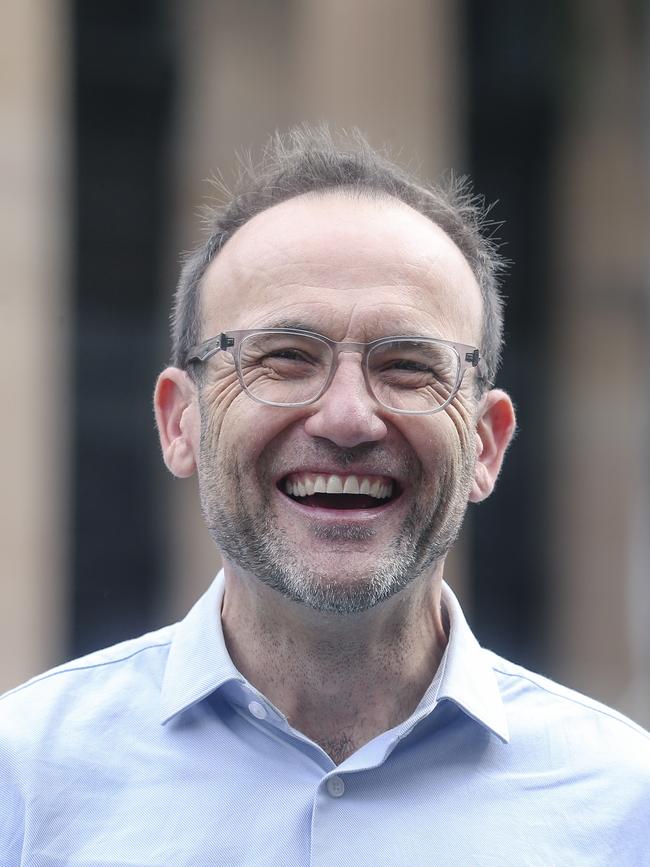
In the past week, we have seen a frustrated Dutton turn the blowtorch on Labor for the “lies”, or at best obfuscations, that it has deployed so effectively against the Coalition.
Chief among these has been the tried and tested “Mediscare” trope. The claim that the Liberals have a secret plot to dismantle Australia’s national public health scheme is untrue, but clearly it plays well in focus groups and Labor unleashed from day one to devastating effect.
This set the tone for a campaign in which the wily and experienced Labor machine has more than once forced Dutton onto the back foot with nebulous claims and fear mongering, including over the nonsensical figure plucked from the air by climate lobbyists of $600bn to build nuclear reactors.
Dutton, meanwhile, left it too late to launch and flesh out his signature policies, making his own campaign feel lacklustre.
The other ever-present factor is the danger of the economically catastrophic Greens wielding influence on Labor in a hung parliament.
Despite Albanese scoffing at suggestions he’d do deals with the extremist party, analysis has shown Labor is preferencing the Greens either third or above in all but eight seats.
Adam Bandt leads this extreme-left, anti-Israel party and will demand changes to negative gearing and capital gains tax discounts in any negotiations with government.
The greatest risk of all to Australia, then, is a minority government where the high-taxing Greens are calling the shots and strong-arming Labor from a powerful crossbench.
The same goes for the Teals, who hold many similarities with the Greens and usually vote with them.
For this reason, we believe Australians should not place a precious vote with the Greens or Teals. And, with polls still tight, voters must be clear-eyed about the fact a vote for Labor risks an empowered, extreme crossbench.
As of this weekend, Labor has the upper hand in this campaign. But a superior campaign should not outweigh three years of pain.
History tells us it is highly likely for a first-term government to be returned at the ballot box, but this may not be the best long-term outcome for our country.
Another three years of the same big-spending budgets with a lack of focus on how the world is changing strategically and economically would hurt us.
With just a week to go, Dutton must convince Australians of his plan for the future and his willingness for meaningful reform.
If he can show the same strength and courage of his convictions as he did in the Voice debate last year, Australians should reward him with their vote.
This would be the best course for Australia’s future.


